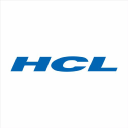WIPRO.NS

Wipro Limited
WIPRO.NS
(2.8)572,20 INR
13.25% ROA
15.33% ROE
24.63x PER
2.753.538.894.657,00 INR
19.58% DER
0.19% Yield
12.57% NPM
Wipro Limited Stock Analysis
Wipro Limited Fundamental Analysis
Fundamental analysis in stock investing is like studying the foundation of a house before buying it. It involves looking at a company's financial health, like its earnings, assets, and debts, to determine if it's a good investment based on its fundamental strength and potential for growth.
| # | Analysis | Rating |
|---|---|---|
| 1 |
ROE
ROE surpassing expectations (15.94%) highlights strong profitability and efficient use of shareholders' equity, making it an appealing investment prospect. |
|
| 2 |
ROA
The stock's ability to make a lot of money from its assets shows that it is very profitable, making it a good choice for people who want to invest and make a lot of money. |
|
| 3 |
DER
The stock has a minimal amount of debt (26%) relative to its ownership, showcasing a strong financial position and lower risk for investors. |
|
| 4 |
Dividend
The company's consistent dividend payouts over the past five years exemplify its strong commitment to providing shareholders with reliable returns, making it an attractive investment option. |
|
| 5 |
PBV
The stock's PBV ratio (2.96x) indicates a justifiable valuation, presenting a compelling choice for investors seeking reasonable returns. |
|
| 6 |
Assets Growth
Company's revenue has experienced consistent growth over the last three years, indicating a favorable financial trajectory and making it an attractive investment choice. |
|
| 7 |
Buffet Intrinsic Value
Warren Buffett's formula suggests that the company's stock is undervalued (3.241), making it an appealing investment prospect with its intrinsic value surpassing the current market price. |
|
| 8 |
Revenue Growth
Company's revenue has stayed stagnant, showing no signs of improvement and making it a less favorable choice. |
|
| 9 |
Net Profit Growth
Throughout the last five years, this company's net profit has remained unchanged, indicating a lack of growth and making it a less favorable investment option. |
|
| 10 |
Graham Number
The company's Graham number indicates that it is overvalued compared to its stock price, suggesting a potentially unfavorable investment opportunity. |
|
| 11 |
Dividend Growth
The company's dividend growth has remained flat for the past three years, offering no indication of improved returns and making it a less advantageous investment opportunity. |
Wipro Limited Technical Analysis
Technical analysis in stock investing is like reading the patterns on a weather map to predict future weather conditions. It involves studying past stock price movements and trading volumes to make predictions about where a stock's price might go next, without necessarily looking at the company's financial health.
| # | Analysis | Recommendation |
|---|---|---|
| 1 | Awesome Oscillator | Buy |
| 2 | MACD | Buy |
| 3 | RSI | Sell |
| 4 | Stoch RSI | Hold |
Wipro Limited Price Chart
Financial Statements
Financial statements are like report cards for companies. They show how much money a company makes (income statement), what it owns and owes (balance sheet), and where it spends its money (cash flow statement), helping stock investors understand if a company is healthy and worth investing in.
Income Statements
An income statement for a company is like a scoreboard for its profits and losses. It shows how much money the company made (revenue) and how much it spent to make that money (expenses), helping stock investors see if a company is making a profit or not.
Revenue in stock investing is the total amount of money a company earns from its sales, and it's a key factor that investors consider to assess a company's financial performance and growth potential.
| Year | Revenue | Growth |
|---|---|---|
| 1999 | 23.000.129.808 | |
| 2000 | 30.810.188.981 | 25.35% |
| 2001 | 33.909.808.437 | 9.14% |
| 2002 | 42.849.909.798 | 20.86% |
| 2003 | 58.560.132.933 | 26.83% |
| 2004 | 81.353.707.560 | 28.02% |
| 2005 | 106.296.234.005 | 23.47% |
| 2006 | 149.785.275.551 | 29.03% |
| 2007 | 197.320.000.000 | 24.09% |
| 2008 | 254.564.000.000 | 22.49% |
| 2009 | 256.891.000.000 | 0.91% |
| 2010 | 310.542.000.000 | 17.28% |
| 2011 | 371.971.000.000 | 16.51% |
| 2012 | 374.256.000.000 | 0.61% |
| 2013 | 434.269.000.000 | 13.82% |
| 2014 | 469.545.000.000 | 7.51% |
| 2015 | 512.440.000.000 | 8.37% |
| 2016 | 550.402.000.000 | 6.9% |
| 2017 | 544.871.000.000 | -1.02% |
| 2018 | 585.845.000.000 | 6.99% |
| 2019 | 610.232.000.000 | 4% |
| 2020 | 619.430.000.000 | 1.48% |
| 2021 | 790.934.000.000 | 21.68% |
| 2022 | 904.876.000.000 | 12.59% |
| 2023 | 900.636.000.000 | -0.47% |
| 2023 | 897.603.000.000 | -0.34% |
| 2024 | 878.552.000.000 | -2.17% |
Research and Development Expenses are the costs a company incurs to create and improve its products or services, which can be important for investors to evaluate a company's innovation and potential for future growth.
| Year | Research and Development Expenses | Growth |
|---|---|---|
| 1999 | 0 | |
| 2000 | 0 | 0% |
| 2001 | 126.641.498 | 100% |
| 2002 | 260.473.961 | 51.38% |
| 2003 | 232.537.972 | -12.01% |
| 2004 | 262.008.720 | 11.25% |
| 2005 | 202.744.860 | -29.23% |
| 2006 | 268.285.289 | 24.43% |
| 2007 | 400.000.000 | 32.93% |
| 2008 | 0 | 0% |
| 2009 | 0 | 0% |
| 2010 | 0 | 0% |
| 2011 | 0 | 0% |
| 2012 | 0 | 0% |
| 2013 | 2.660.000.000 | 100% |
| 2014 | 2.513.000.000 | -5.85% |
| 2015 | 2.561.000.000 | 1.87% |
| 2016 | 3.338.000.000 | 23.28% |
| 2017 | 3.041.000.000 | -9.77% |
| 2018 | 3.942.000.000 | 22.86% |
| 2019 | 4.619.000.000 | 14.66% |
| 2020 | 3.703.000.000 | -24.74% |
| 2021 | 2.926.000.000 | -26.56% |
| 2022 | 3.675.000.000 | 20.38% |
| 2023 | 0 | 0% |
| 2023 | 4.332.000.000 | 100% |
| 2024 | 0 | 0% |
General and Administrative Expenses are the costs a company incurs to run its day-to-day operations, such as office rent, salaries, and utilities, which investors consider to understand a company's overall efficiency and management effectiveness.
| Year | General and Administrative Expenses | Growth |
|---|---|---|
| 1999 | 0 | |
| 2000 | 0 | 0% |
| 2001 | 0 | 0% |
| 2002 | 0 | 0% |
| 2003 | 0 | 0% |
| 2004 | 0 | 0% |
| 2005 | 0 | 0% |
| 2006 | 0 | 0% |
| 2007 | 10.820.000.000 | 100% |
| 2008 | 14.696.000.000 | 26.37% |
| 2009 | 14.510.000.000 | -1.28% |
| 2010 | 18.339.000.000 | 20.88% |
| 2011 | 20.286.000.000 | 9.6% |
| 2012 | 22.032.000.000 | 7.92% |
| 2013 | 23.538.000.000 | 6.4% |
| 2014 | 25.850.000.000 | 8.94% |
| 2015 | 28.465.000.000 | 9.19% |
| 2016 | 32.021.000.000 | 11.11% |
| 2017 | 34.141.000.000 | 6.21% |
| 2018 | 35.951.000.000 | 5.03% |
| 2019 | 29.823.000.000 | -20.55% |
| 2020 | 34.686.000.000 | 14.02% |
| 2021 | 46.382.000.000 | 25.22% |
| 2022 | 59.139.000.000 | 21.57% |
| 2023 | 56.496.000.000 | -4.68% |
| 2023 | 113.334.000.000 | 50.15% |
| 2024 | 56.852.000.000 | -99.35% |
EBITDA stands for Earnings Before Interest, Taxes, Depreciation, and Amortization. It is a measure that helps stock investors analyze a company's profitability by looking at its earnings without considering certain expenses. This helps to get a clearer picture of the company's financial performance and its ability to generate cash flow.
| Year | EBITDA | Growth |
|---|---|---|
| 1999 | 3.676.375.354 | |
| 2000 | 7.810.519.699 | 52.93% |
| 2001 | 8.370.666.866 | 6.69% |
| 2002 | 10.331.896.840 | 18.98% |
| 2003 | 12.125.076.497 | 14.79% |
| 2004 | 20.218.339.560 | 40.03% |
| 2005 | 24.979.993.745 | 19.06% |
| 2006 | 32.021.987.795 | 21.99% |
| 2007 | 37.280.000.000 | 14.1% |
| 2008 | 54.304.000.000 | 31.35% |
| 2009 | 46.406.000.000 | -17.02% |
| 2010 | 64.968.000.000 | 28.57% |
| 2011 | 69.962.000.000 | 7.14% |
| 2012 | 78.663.000.000 | 11.06% |
| 2013 | 100.537.000.000 | 21.76% |
| 2014 | 111.645.000.000 | 9.95% |
| 2015 | 128.689.000.000 | 13.24% |
| 2016 | 130.516.000.000 | 1.4% |
| 2017 | 121.747.000.000 | -7.2% |
| 2018 | 136.387.000.000 | 10.73% |
| 2019 | 145.216.000.000 | 6.08% |
| 2020 | 166.286.000.000 | 12.67% |
| 2021 | 180.013.000.000 | 7.63% |
| 2022 | 185.368.000.000 | 2.89% |
| 2023 | 151.428.000.000 | -22.41% |
| 2023 | 167.758.000.000 | 9.73% |
| 2024 | 174.256.000.000 | 3.73% |
Gross profit is the money a company makes from selling its products or services after subtracting the cost of producing or providing them, and it is an important measure for investors to understand a company's profitability.
| Year | Gross Profit | Growth |
|---|---|---|
| 1999 | 8.151.527.961 | |
| 2000 | 12.519.543.449 | 34.89% |
| 2001 | 13.085.541.082 | 4.33% |
| 2002 | 15.673.461.393 | 16.51% |
| 2003 | 19.475.575.762 | 19.52% |
| 2004 | 27.510.915.600 | 29.21% |
| 2005 | 34.521.879.830 | 20.31% |
| 2006 | 47.343.065.119 | 27.08% |
| 2007 | 58.560.000.000 | 19.15% |
| 2008 | 76.388.000.000 | 23.34% |
| 2009 | 76.676.000.000 | 0.38% |
| 2010 | 97.734.000.000 | 21.55% |
| 2011 | 108.798.000.000 | 10.17% |
| 2012 | 113.591.000.000 | 4.22% |
| 2013 | 138.781.000.000 | 18.15% |
| 2014 | 148.261.000.000 | 6.39% |
| 2015 | 155.716.000.000 | 4.79% |
| 2016 | 158.858.000.000 | 1.98% |
| 2017 | 159.296.000.000 | 0.27% |
| 2018 | 172.812.000.000 | 7.82% |
| 2019 | 174.147.000.000 | 0.77% |
| 2020 | 196.225.000.000 | 11.25% |
| 2021 | 235.062.000.000 | 16.52% |
| 2022 | 259.430.000.000 | 9.39% |
| 2023 | 263.872.000.000 | 1.68% |
| 2023 | 266.106.000.000 | 0.84% |
| 2024 | 265.328.000.000 | -0.29% |
Net income in stock investing is like the money a company actually gets to keep as profit after paying all its bills, and it's an important measure to understand how well a company is doing financially.
| Year | Net Profit | Growth |
|---|---|---|
| 1999 | 3.553.187.588 | |
| 2000 | 6.431.880.468 | 44.76% |
| 2001 | 8.320.916.589 | 22.7% |
| 2002 | 8.104.266.270 | -2.67% |
| 2003 | 10.013.709.803 | 19.07% |
| 2004 | 15.851.527.560 | 36.83% |
| 2005 | 20.306.123.160 | 21.94% |
| 2006 | 29.247.848.780 | 30.57% |
| 2007 | 32.241.000.000 | 9.28% |
| 2008 | 38.860.000.000 | 17.03% |
| 2009 | 45.931.000.000 | 15.39% |
| 2010 | 52.977.000.000 | 13.3% |
| 2011 | 55.730.000.000 | 4.94% |
| 2012 | 66.359.000.000 | 16.02% |
| 2013 | 77.967.000.000 | 14.89% |
| 2014 | 86.528.000.000 | 9.89% |
| 2015 | 89.075.000.000 | 2.86% |
| 2016 | 84.895.000.000 | -4.92% |
| 2017 | 80.081.000.000 | -6.01% |
| 2018 | 90.031.000.000 | 11.05% |
| 2019 | 97.218.000.000 | 7.39% |
| 2020 | 107.946.000.000 | 9.94% |
| 2021 | 122.191.000.000 | 11.66% |
| 2022 | 113.500.000.000 | -7.66% |
| 2023 | 105.852.000.000 | -7.23% |
| 2023 | 110.452.000.000 | 4.16% |
| 2024 | 120.128.000.000 | 8.05% |
EPS, or earnings per share, is a measure that shows how much profit a company has earned for each outstanding share of its stock, and it is important for stock investors as it helps understand the profitability of a company and compare it with other companies in the market.
| Year | Earning per Share (EPS) | Growth |
|---|---|---|
| 1999 | 1 | |
| 2000 | 1 | 100% |
| 2001 | 1 | 0% |
| 2002 | 1 | 0% |
| 2003 | 2 | 0% |
| 2004 | 3 | 50% |
| 2005 | 3 | 33.33% |
| 2006 | 5 | 25% |
| 2007 | 5 | 20% |
| 2008 | 6 | 16.67% |
| 2009 | 6 | -20% |
| 2010 | 8 | 37.5% |
| 2011 | 9 | 0% |
| 2012 | 10 | 20% |
| 2013 | 12 | 9.09% |
| 2014 | 13 | 15.38% |
| 2015 | 14 | 0% |
| 2016 | 13 | 0% |
| 2017 | 13 | -8.33% |
| 2018 | 15 | 14.29% |
| 2019 | 17 | 12.5% |
| 2020 | 19 | 15.79% |
| 2021 | 22 | 13.64% |
| 2022 | 21 | -10% |
| 2023 | 20 | 0% |
| 2023 | 21 | 0% |
| 2024 | 23 | 13.04% |
Cashflow Statements
Cashflow statements show the movement of money in and out of a company, helping stock investors understand how much money a company makes and spends. By examining cashflow statements, investors can assess if a company is generating enough cash to pay its bills, invest in growth, and provide returns to stockholders.
Free cash flow is the leftover cash that a company generates after covering its operating expenses and capital expenditures, which is important for stock investors as it shows how much money a company has available to invest in growth, pay dividends, or reduce debt.
| Year | Free Cashflow | Growth |
|---|---|---|
| 1999 | 2.164.017.354 | |
| 2000 | 2.248.797.575 | 3.77% |
| 2001 | 5.565.550.355 | 59.59% |
| 2002 | 5.134.028.984 | -8.41% |
| 2003 | 6.695.011.163 | 23.32% |
| 2004 | 12.401.746.080 | 46.02% |
| 2005 | 12.728.366.901 | 2.57% |
| 2006 | 18.814.099.948 | 32.35% |
| 2007 | 9.920.000.000 | -89.66% |
| 2008 | 20.240.000.000 | 50.99% |
| 2009 | 38.367.000.000 | 47.25% |
| 2010 | 28.226.000.000 | -35.93% |
| 2011 | 27.099.000.000 | -4.16% |
| 2012 | 59.806.000.000 | 54.69% |
| 2013 | 58.984.000.000 | -1.39% |
| 2014 | 65.601.000.000 | 10.09% |
| 2015 | 64.922.000.000 | -1.05% |
| 2016 | 71.920.000.000 | 9.73% |
| 2017 | 62.363.000.000 | -15.32% |
| 2018 | 93.535.000.000 | 33.33% |
| 2019 | 77.146.000.000 | -21.24% |
| 2020 | 127.973.000.000 | 39.72% |
| 2021 | 90.644.000.000 | -41.18% |
| 2022 | 115.767.000.000 | 21.7% |
| 2023 | 36.658.000.000 | -215.8% |
| 2023 | 175.364.000.000 | 79.1% |
| 2024 | 37.340.000.000 | -369.64% |
Operating cash flow represents the cash generated or consumed by a company's day-to-day operations, excluding external investing or financing activities, and is crucial for stock investors as it shows how much cash a company is generating from its core business operations.
| Year | Operating Cashflow | Growth |
|---|---|---|
| 1999 | 3.482.532.570 | |
| 2000 | 5.046.164.129 | 30.99% |
| 2001 | 8.045.170.440 | 37.28% |
| 2002 | 7.663.318.355 | -4.98% |
| 2003 | 10.838.655.612 | 29.3% |
| 2004 | 18.995.632.200 | 42.94% |
| 2005 | 20.227.698.774 | 6.09% |
| 2006 | 30.232.857.572 | 33.09% |
| 2007 | 24.600.000.000 | -22.9% |
| 2008 | 36.832.000.000 | 33.21% |
| 2009 | 50.998.000.000 | 27.78% |
| 2010 | 40.437.000.000 | -26.12% |
| 2011 | 40.076.000.000 | -0.9% |
| 2012 | 70.422.000.000 | 43.09% |
| 2013 | 67.897.000.000 | -3.72% |
| 2014 | 78.262.000.000 | 13.24% |
| 2015 | 78.873.000.000 | 0.77% |
| 2016 | 92.773.000.000 | 14.98% |
| 2017 | 84.233.000.000 | -10.14% |
| 2018 | 116.316.000.000 | 27.58% |
| 2019 | 100.643.000.000 | -15.57% |
| 2020 | 147.550.000.000 | 31.79% |
| 2021 | 110.797.000.000 | -33.17% |
| 2022 | 130.601.000.000 | 15.16% |
| 2023 | 38.633.000.000 | -238.06% |
| 2023 | 185.874.000.000 | 79.22% |
| 2024 | 39.959.000.000 | -365.16% |
Capex, short for capital expenditures, refers to the money a company spends on acquiring or upgrading tangible assets like buildings, equipment, or technology, which is important for stock investors as it indicates how much a company is investing in its infrastructure to support future growth and profitability.
| Year | Capital Expenditure | Growth |
|---|---|---|
| 1999 | 1.318.515.215 | |
| 2000 | 2.797.366.554 | 52.87% |
| 2001 | 2.479.620.085 | -12.81% |
| 2002 | 2.529.289.370 | 1.96% |
| 2003 | 4.143.644.448 | 38.96% |
| 2004 | 6.593.886.120 | 37.16% |
| 2005 | 7.499.331.873 | 12.07% |
| 2006 | 11.418.757.623 | 34.32% |
| 2007 | 14.680.000.000 | 22.22% |
| 2008 | 16.592.000.000 | 11.52% |
| 2009 | 12.631.000.000 | -31.36% |
| 2010 | 12.211.000.000 | -3.44% |
| 2011 | 12.977.000.000 | 5.9% |
| 2012 | 10.616.000.000 | -22.24% |
| 2013 | 8.913.000.000 | -19.11% |
| 2014 | 12.661.000.000 | 29.6% |
| 2015 | 13.951.000.000 | 9.25% |
| 2016 | 20.853.000.000 | 33.1% |
| 2017 | 21.870.000.000 | 4.65% |
| 2018 | 22.781.000.000 | 4% |
| 2019 | 23.497.000.000 | 3.05% |
| 2020 | 19.577.000.000 | -20.02% |
| 2021 | 20.153.000.000 | 2.86% |
| 2022 | 14.834.000.000 | -35.86% |
| 2023 | 1.975.000.000 | -651.09% |
| 2023 | 10.510.000.000 | 81.21% |
| 2024 | 2.619.000.000 | -301.3% |
Balance Sheet
Balance sheets provide a snapshot of a company's financial health and its assets (such as cash, inventory, and property) and liabilities (like debts and obligations) at a specific point in time. For stock investors, balance sheets help assess the company's overall worth and evaluate its ability to meet financial obligations and support future growth.
Equity refers to the ownership interest or stake that shareholders have in a company, representing their claim on its assets and earnings after all debts and liabilities are paid.
| Year | Equity | Growth |
|---|---|---|
| 1999 | 6.689.737.643 | |
| 2000 | 18.962.458.618 | 64.72% |
| 2001 | 27.399.343.904 | 30.79% |
| 2002 | 35.431.567.772 | 22.67% |
| 2003 | 46.873.147.561 | 24.41% |
| 2004 | 57.248.905.320 | 18.12% |
| 2005 | 78.904.734.961 | 27.45% |
| 2006 | 101.708.206.073 | 22.42% |
| 2007 | 129.520.000.000 | 21.47% |
| 2008 | 150.417.000.000 | 13.89% |
| 2009 | 147.381.000.000 | -2.06% |
| 2010 | 240.371.000.000 | 38.69% |
| 2011 | 286.163.000.000 | 16% |
| 2012 | 284.983.000.000 | -0.41% |
| 2013 | 344.886.000.000 | 17.37% |
| 2014 | 409.628.000.000 | 15.81% |
| 2015 | 468.302.000.000 | 12.53% |
| 2016 | 522.695.000.000 | 10.41% |
| 2017 | 485.346.000.000 | -7.7% |
| 2018 | 570.753.000.000 | 14.96% |
| 2019 | 559.333.000.000 | -2.04% |
| 2020 | 554.593.000.000 | -0.85% |
| 2021 | 658.673.000.000 | 15.8% |
| 2022 | 781.753.000.000 | 15.74% |
| 2023 | 751.223.000.000 | -4.06% |
| 2023 | 699.734.000.000 | -7.36% |
| 2024 | 781.762.000.000 | 10.49% |
Assets represent the valuable resources that a company owns, such as cash, inventory, property, and equipment, and understanding a company's assets helps investors assess its value and potential for generating future profits.
| Year | Assets | Growth |
|---|---|---|
| 1999 | 12.683.623.794 | |
| 2000 | 25.999.711.166 | 51.22% |
| 2001 | 33.683.374.021 | 22.81% |
| 2002 | 42.780.905.051 | 21.27% |
| 2003 | 57.863.560.232 | 26.07% |
| 2004 | 72.096.066.120 | 19.74% |
| 2005 | 100.572.590.635 | 28.31% |
| 2006 | 146.430.197.358 | 31.32% |
| 2007 | 224.400.000.000 | 34.75% |
| 2008 | 290.548.000.000 | 22.77% |
| 2009 | 284.327.000.000 | -2.19% |
| 2010 | 371.443.000.000 | 23.45% |
| 2011 | 436.001.000.000 | 14.81% |
| 2012 | 439.730.000.000 | 0.85% |
| 2013 | 502.304.000.000 | 12.46% |
| 2014 | 600.033.000.000 | 16.29% |
| 2015 | 724.921.000.000 | 17.23% |
| 2016 | 793.516.000.000 | 8.64% |
| 2017 | 760.640.000.000 | -4.32% |
| 2018 | 833.171.000.000 | 8.71% |
| 2019 | 817.062.000.000 | -1.97% |
| 2020 | 831.434.000.000 | 1.73% |
| 2021 | 1.079.182.000.000 | 22.96% |
| 2022 | 1.175.822.000.000 | 8.22% |
| 2023 | 1.152.459.000.000 | -2.03% |
| 2023 | 1.086.330.000.000 | -6.09% |
| 2024 | 1.190.816.000.000 | 8.77% |
Liabilities refer to the financial obligations or debts that a company owes to creditors or external parties, and understanding a company's liabilities is important for investors as it helps assess the company's financial risk and ability to meet its obligations.
| Year | Liabilities | Growth |
|---|---|---|
| 1999 | 5.993.886.151 | |
| 2000 | 7.037.252.548 | 14.83% |
| 2001 | 6.284.030.117 | -11.99% |
| 2002 | 7.349.337.279 | 14.5% |
| 2003 | 10.990.412.669 | 33.13% |
| 2004 | 14.847.160.800 | 25.98% |
| 2005 | 21.667.855.673 | 31.48% |
| 2006 | 44.721.991.285 | 51.55% |
| 2007 | 94.880.000.000 | 52.86% |
| 2008 | 140.131.000.000 | 32.29% |
| 2009 | 136.946.000.000 | -2.33% |
| 2010 | 131.072.000.000 | -4.48% |
| 2011 | 149.838.000.000 | 12.52% |
| 2012 | 154.747.000.000 | 3.17% |
| 2013 | 157.418.000.000 | 1.7% |
| 2014 | 190.405.000.000 | 17.32% |
| 2015 | 256.619.000.000 | 25.8% |
| 2016 | 270.821.000.000 | 5.24% |
| 2017 | 275.294.000.000 | 1.62% |
| 2018 | 262.418.000.000 | -4.91% |
| 2019 | 257.729.000.000 | -1.82% |
| 2020 | 276.841.000.000 | 6.9% |
| 2021 | 420.509.000.000 | 34.17% |
| 2022 | 394.069.000.000 | -6.71% |
| 2023 | 401.236.000.000 | 1.79% |
| 2023 | 386.596.000.000 | -3.79% |
| 2024 | 409.054.000.000 | 5.49% |
Wipro Limited Financial Ratio (TTM)
Valuation Metrics
- Revenue per Share
- 170.11
- Net Income per Share
- 21.39
- Price to Earning Ratio
- 24.63x
- Price To Sales Ratio
- 3.1x
- POCF Ratio
- 14.96
- PFCF Ratio
- 15.9
- Price to Book Ratio
- 3.53
- EV to Sales
- 3.18
- EV Over EBITDA
- 16.89
- EV to Operating CashFlow
- 15.34
- EV to FreeCashFlow
- 16.31
- Earnings Yield
- 0.04
- FreeCashFlow Yield
- 0.06
- Market Cap
- 2.753,54 Bil.
- Enterprise Value
- 2.824,14 Bil.
- Graham Number
- 268.04
- Graham NetNet
- 37.94
Income Statement Metrics
- Net Income per Share
- 21.39
- Income Quality
- 1.65
- ROE
- 0.15
- Return On Assets
- 0.09
- Return On Capital Employed
- 0.15
- Net Income per EBT
- 0.75
- EBT Per Ebit
- 1.08
- Ebit per Revenue
- 0.16
- Effective Tax Rate
- 0.25
Margins
- Sales, General, & Administrative to Revenue
- 0.06
- Research & Developement to Revenue
- 0
- Stock Based Compensation to Revenue
- 0.01
- Gross Profit Margin
- 0.3
- Operating Profit Margin
- 0.16
- Pretax Profit Margin
- 0.17
- Net Profit Margin
- 0.13
Dividends
- Dividend Yield
- 0
- Dividend Yield %
- 0.19
- Payout Ratio
- 0.05
- Dividend Per Share
- 1
Operating Metrics
- Operating Cashflow per Share
- 35.22
- Free CashFlow per Share
- 33.13
- Capex to Operating CashFlow
- 0.06
- Capex to Revenue
- 0.01
- Capex to Depreciation
- 0.33
- Return on Invested Capital
- 0.11
- Return on Tangible Assets
- 0.13
- Days Sales Outstanding
- 85.27
- Days Payables Outstanding
- 48.62
- Days of Inventory on Hand
- 1.59
- Receivables Turnover
- 4.28
- Payables Turnover
- 7.51
- Inventory Turnover
- 229.41
- Capex per Share
- 2.09
Balance Sheet
- Cash per Share
- 86,15
- Book Value per Share
- 149,60
- Tangible Book Value per Share
- 83.19
- Shareholders Equity per Share
- 149.28
- Interest Debt per Share
- 31.66
- Debt to Equity
- 0.2
- Debt to Assets
- 0.13
- Net Debt to EBITDA
- 0.42
- Current Ratio
- 2.7
- Tangible Asset Value
- 434,74 Bil.
- Net Current Asset Value
- 282,70 Bil.
- Invested Capital
- 881515000000
- Working Capital
- 435,30 Bil.
- Intangibles to Total Assets
- 0.29
- Average Receivables
- 207,15 Bil.
- Average Payables
- 53,16 Bil.
- Average Inventory
- 3446000000
- Debt to Market Cap
- 0.06
Dividends
Dividends in stock investing are like rewards that companies give to their shareholders. They are a portion of the company's profits distributed to investors, typically in the form of cash payments, as a way for them to share in the company's success.
| Year | Dividends | Growth |
|---|---|---|
| 1996 | 3 | |
| 1997 | 3 | 0% |
| 1998 | 2 | -100% |
| 1999 | 2 | 0% |
| 2000 | 0 | 0% |
| 2001 | 1 | 0% |
| 2002 | 1 | 100% |
| 2003 | 1 | 0% |
| 2004 | 25 | 96% |
| 2005 | 5 | -400% |
| 2006 | 5 | 0% |
| 2007 | 8 | 37.5% |
| 2008 | 4 | -100% |
| 2009 | 4 | 0% |
| 2010 | 6 | 33.33% |
| 2011 | 6 | 0% |
| 2012 | 6 | 0% |
| 2013 | 7 | 14.29% |
| 2014 | 8 | 12.5% |
| 2015 | 12 | 33.33% |
| 2016 | 6 | -100% |
| 2017 | 2 | -200% |
| 2018 | 1 | -100% |
| 2019 | 1 | 0% |
| 2020 | 1 | 0% |
| 2021 | 1 | 0% |
| 2022 | 6 | 83.33% |
| 2023 | 1 | -500% |
| 2024 | 1 | 0% |
Wipro Limited Profile
About Wipro Limited
Wipro Limited operates as information technology (IT), consulting, and business process services company worldwide. It operates through three segments: IT Services, IT Products, and India State Run Enterprise Services (ISRE). The IT Services segment offers IT and IT-enabled services, including digital strategy advisory, customer-centric design, technology and IT consulting, custom application design, development, re-engineering and maintenance, systems integration, package implementation, cloud and infrastructure, business process, cloud, mobility and analytics, research and development, and hardware and software design services to enterprises. It serves customers in various industry sectors, such as healthcare and medical devices, consumer goods and life sciences, retail, transportation and services, communications, media and information services, technology products and platforms, banking, financial services and insurance, manufacturing, hi-tech, energy, and utilities. The IT Products segment provides a range of third-party IT products comprising enterprise platforms, networking solutions, software and data storage products, contact center infrastructure, enterprise security, IT optimization technologies, video solutions, and end-user computing solutions. It serves enterprises in various industries primarily in the India market, which comprise the government, defense, IT and IT-enabled services, telecommunications, manufacturing, utilities, education, and financial services sectors. The ISRE segment offers IT services to entities and departments owned or controlled by the Government of India and/or various Indian State Governments. The company was incorporated in 1945 and is based in Bengaluru, India.
- CEO
- Mr. Srinivas Pallia
- Employee
- 234.000
- Address
-
Doddakannelli
Bengaluru, 560035
Wipro Limited Executives & BODs
| # | Name | Age |
|---|---|---|
| 1 |
Mr. Nagendra P. Bandaru Managing Partner of Wipro Enterprise Futuring & Executive Board Member |
70 |
| 2 |
Mr. Saurabh Govil Chief Human Resources Officer & Executive Board Member |
70 |
| 3 |
Mr. Malay Joshi Chief Executive Officer for Americas 1 Strategic Market Unit & Member of Executive Board |
70 |
| 4 |
Ms. Aparna C. Iyer Chief Financial Officer, Corporate Treasurer, Investor Relations & Member of Executive Board |
70 |
| 5 |
Ms. Suzanne Dann Chief Executive Officer of Americas 2 & Executive Board Member |
70 |
| 6 |
Mr. Sanjeev Jain Chief Operating Officer |
70 |
| 7 |
Mr. Srinivas Pallia Chief Executive Officer, MD, Executive Director & Member of Executive Board |
70 |
| 8 |
Mr. Jo Debecker Global Head of Wipro FullStride Cloud & Member of Executive Board |
70 |
| 9 |
Mr. Pierre Bruno Member of Executive Board & Chief Executive Officer of Europe |
70 |
| 10 |
Mr. Rishad Azim Hasham Premji Jr. Executive Chairman |
70 |




